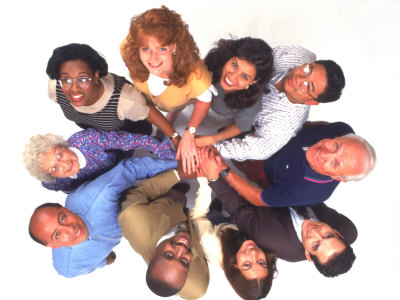Reading
Journal #3 of “The body”
<Final
thoughts about “The body”>
16th
waver 10b1 Seung Jun Kim
After I finished reading the book,
I made a small grin. Why? It was because I was pretty glad about how those four
boys acquired maturity that will last for their rest of their lives (although
three of them die). Maturity is something that cannot be acquired easily
especially in the modern day world where there are parents running hastily
around to do everything for their kids.
This is how the world looks like: “Mom,
what should I do next?”
“You
go to the English private academy at 2 o’clock and return at 6 o’clock. After
that, you take a shower and eat dinner. Next, you have to prepare for your
first math class you’ll have tomorrow.”
“What?
I didn’t even know I was going to a math private academy...”
“You
are a teenager. You don’t know what’s important and what’s not. I make
decisions for you and the only thing you have to do is to follow them.”
“Mom,
but...”
“Be
a grown up boy, Sam! You should learn how to obey your parents. Parents know
what’s best for you!”
At first, this piece of dialogue
seems very far-fetched, but unfortunately, this is the reality of our society. Kids
are not allowed to think about their own life and they never encounter
hardships in their lives because their parents are getting rid of the obstacles
before their children face them. However, the four boys were different. They
knew how to control their lives, they understood how things should be done, and
finally they worried about their own future (although these things happened not
because their parents educated the four boys to be independent, but rather
because the disregard of the parents towards them inevitably forced them to be
independent). So let’s look at some the thoughts that came up to my mind after
reading this book.
 To begin with, I believe good
friendship contributed greatly to the development of maturity within these four
kids. The relationship between Criss and Gordie was especially encouraging. Throughout
the journey, Criss constantly encourages Gordie to become a great writer. In
response, Gordie solaces Criss about the unfortunate milk money incident. This
kind of mutual cooperation continued on even after the disunion of the four
kids. Despite the derogatory and hostile attitudes of the surrounding people,
Criss was never discouraged because Gordie was always there for him to give
great advice. On the other hand, Criss was always beside Gordie to heal the
emotional scars within Gordie’s soul by making peace. Eventually, Criss and
Gordie achieved their goal of self-realization by becoming a lawyer and writer
respectively.
To begin with, I believe good
friendship contributed greatly to the development of maturity within these four
kids. The relationship between Criss and Gordie was especially encouraging. Throughout
the journey, Criss constantly encourages Gordie to become a great writer. In
response, Gordie solaces Criss about the unfortunate milk money incident. This
kind of mutual cooperation continued on even after the disunion of the four
kids. Despite the derogatory and hostile attitudes of the surrounding people,
Criss was never discouraged because Gordie was always there for him to give
great advice. On the other hand, Criss was always beside Gordie to heal the
emotional scars within Gordie’s soul by making peace. Eventually, Criss and
Gordie achieved their goal of self-realization by becoming a lawyer and writer
respectively.
Moreover, I believe there were some
really good symbolic entities that greatly contributed to the overall atmosphere
of the story. The deer, for example, represents purity and innocence. In the
book, Gordie states that the experience of seeing the deer was the best and cleanest
part of the journey. By evoking feminine and delicate feeling within Gordie’s
mind, I believe the deer was effective in portraying the process of how Gordie’s
scar was healing from the scars of Castle Rock. Also, I believe the train
symbolizes the societal pressures and corruption of Castle Rock. According to
the societal prejudice of Castle Rock, Criss is expected to become a bad boy
and Teddy is considered to be a “son of a loony” no matter what he does. These
societal moulds are very difficult to pulverize. I believe the scene where the
train almost ran over Vern and Gordie, represents how the boys eventually
escapes from the malicious society of Castle Rock and acquire maturity.
 Lastly, I was pretty disappointed
by the sad ending of the story. It would have been much better if all the four
boys were alive and lived happily ever after. The sad ending sharply contrasted
to the movie I once saw called, “Coach Carter”. The movie was about a black
basketball coach who eventually succeeds in making the basketball players of
the school to lead a better life. At first, this task seems very difficult for
coach Carter because most of the boys in the basketball team were addicted to
drugs, sex and they didn’t have any will to study whatsoever. However, all the
indulgent boys are touched by the devotion of their coach, Carter and finally
make up their minds to transform their lives. In the end of the movie, the
narrator describes how most of the boys turned out to be successful in their
lives. One became an officer in the Bank of America, another became a famous
basketball coach of NBA and some other dudes became good businessmen. I believe
same goes with “The body”. If Stephen King had changed the ending by allowing all
the boys to be alive and to lead a wonderful life in the end of the book, the
theme of maturity would have been more effectively portrayed. However, overall,
I loved both the book and the film J
Lastly, I was pretty disappointed
by the sad ending of the story. It would have been much better if all the four
boys were alive and lived happily ever after. The sad ending sharply contrasted
to the movie I once saw called, “Coach Carter”. The movie was about a black
basketball coach who eventually succeeds in making the basketball players of
the school to lead a better life. At first, this task seems very difficult for
coach Carter because most of the boys in the basketball team were addicted to
drugs, sex and they didn’t have any will to study whatsoever. However, all the
indulgent boys are touched by the devotion of their coach, Carter and finally
make up their minds to transform their lives. In the end of the movie, the
narrator describes how most of the boys turned out to be successful in their
lives. One became an officer in the Bank of America, another became a famous
basketball coach of NBA and some other dudes became good businessmen. I believe
same goes with “The body”. If Stephen King had changed the ending by allowing all
the boys to be alive and to lead a wonderful life in the end of the book, the
theme of maturity would have been more effectively portrayed. However, overall,
I loved both the book and the film J
"Stand by me, Gordie."

Thank you for such a good book and film, Mr. King :)






